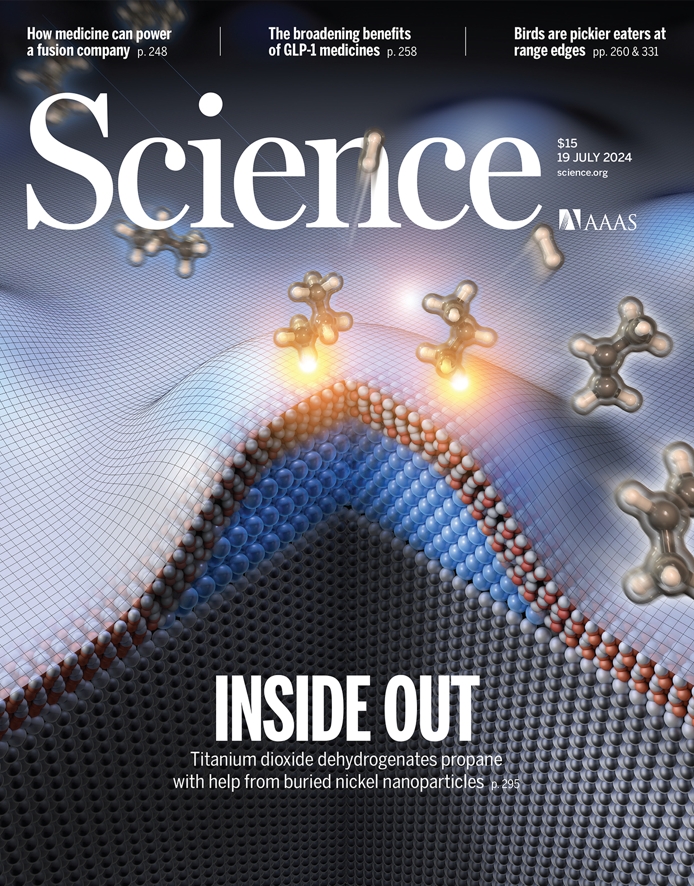The industrial catalysts utilized for propane dehydrogenation (PDH) to propylene, an important alternative to petroleum-based cracking processes, either use expensive metals or metal oxides that are environmentally unbenign. We report that a typically less-active oxide, titanium oxide (TiO2), can be combined with earth-abundant metallic nickel (Ni) to form an unconventional Ni@TiOx catalyst for efficient PDH. The catalyst demonstrates a 94% propylene selectivity at 40% propane conversion and superior stability under industrially relevant conditions. Complete encapsulation of Ni nanoparticles was allowed at elevated temperatures (>550°C). A mechanistic study suggested that the defective TiOx overlayer consisting of tetracoordinated Ti sites with oxygen vacancies is catalytically active. Subsurface metallic Ni acts as an electronic promoter to accelerate carbon-hydrogen bond activation and hydrogen (H2) desorption on the TiOx overlayer.

Sai Chen, Yiyi Xu, Xin Chang, Yue Pan, Guodong Sun, Xianhui Wang, Donglong Fu, Chunlei Pei, Zhi-Jian Zhao, Dong Su, and Jinlong Gong*, "Defective TiOx Overlayers Catalyze Propane Dehydrogenation Promoted by Base Metals," Science, 2024, 385, 295-300. https://doi.org/10.1126/science.adp7379